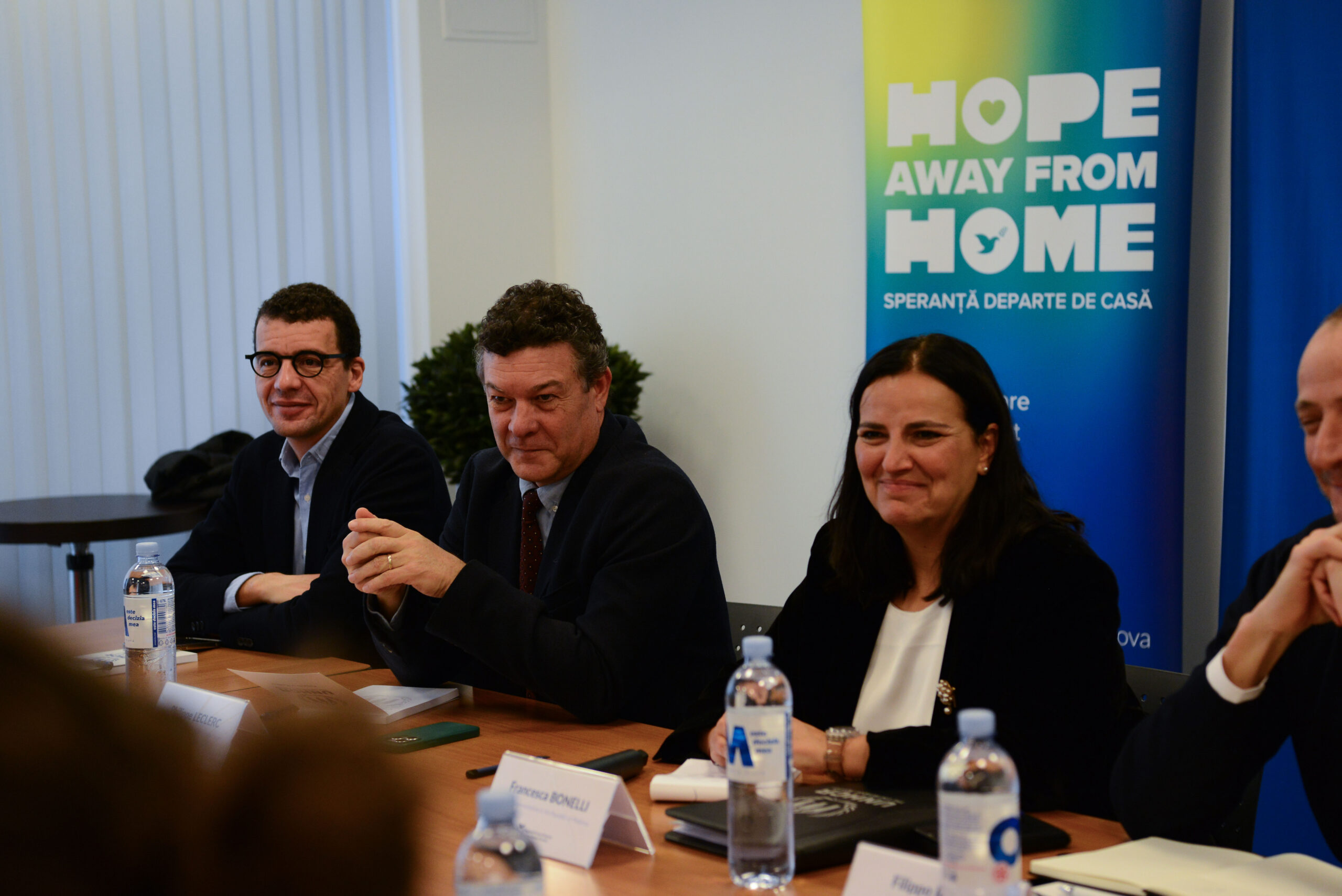
UNHCR Regional Director for Europe concerned about consequences of possible underfunding for those impacted by ongoing war in Ukraine in the coming year
During a two-week mission to the Republic of Moldova, Ukraine and Poland, UNHCR Regional Director for Europe witnessed the conditions across the region and appealed for urgent renewed support for the coming year, to enable UNHCR to respond to the needs of those impacted by the ongoing full-scale war in Ukraine.
UNHCR’s Regional Director for Europe, Philippe Leclerc, spent the past two weeks witnessing the situation of Ukrainian refugees, internally displaced persons (IDPs) and war-affected
communities in Ukraine and in the neighbouring Republic of Moldova and Poland. Some 6.3 million refugees from Ukraine remain uprooted from their homes, while 3.7 million people remain internally displaced in Ukraine.
“This past fortnight has been extremely eye-opening. Despite the outpouring of solidarity and generosity we witnessed across Europe following the full-scale invasion of Ukraine almost two years ago, there are significant challenges which remain for refugees as well as those in Ukraine impacted by the ongoing full-scale war,” said Leclerc.
In Moldova, the country hosting the highest number of refugees from Ukraine per capita, Leclerc met with the Moldovan authorities and expressed his gratitude for the continued solidarity and generosity shown to refugees from Ukraine, despite significant national challenges. He also met with refugee children and youth receiving support through UNHCR and partners, visited two of the Community Centres that promote inclusion and diversity in the country, and witnessed the impact of cash assistance on improving the daily lives of refugees and locals alike.
“So far this year, UNHCR has supported almost 950,000 people in Ukraine and neighbouring countries hosting refugees with cash assistance. This is essential in supporting national systems, and in ensuring that the most vulnerable can meet their basic needs with dignity,” said Leclerc.
From Moldova, Leclerc travelled to Ukraine where he met with Ukrainian authorities and visited Odesa, Kherson, Zaporizhzhia, Dnipro and Kyiv regions which have been deeply impacted by the full-scale war, continuous shelling and destruction of homes and civilian infrastructure. In 2023 so far, UNHCR in Ukraine and partners have reached more than 2.4 million people with protection services like free legal aid and psychosocial support, cash and in-kind assistance, emergency shelter materials and house and collective centre repairs.
In Kryvyi Rih, Leclerc met with internally displaced people who had been forced to leave their homes. 61-year-old Olha Myronova was forced to flee her home in Bahmut earlier this year, having spent months in her basement hiding from shelling. Olha received cash assistance and is waiting to receive a winterization top-up to help her through the harsh winter months.
Leclerc concluded his visit to the region in Poland, where he met with UNHCR partners, regional and local authorities in the city of Lublin, and refugees at a shelter run by a local foundation. He also visited a job fair in Lublin supported by UNHCR and partners. This is part of major ongoing efforts to foster the inclusion of refugees in the labour market, providing them with the opportunity to meet with employers in Poland directly. To date, some 42 per cent of refugees from Ukraine across neighbouring countries have managed to secure employment.
However, the vast majority have continued to express the desire to return once conditions are safe to do so, among them many vulnerable people. Irina, a 55-year-old refugee from Ukraine currently hosted in Poland, emphasized that “while we appreciate very much the support provided to us…we are keen to return and reunite with our families as soon as the war will be over. We appreciate the hospitality of Poland a lot, but home is home.”
As we approach the end of 2023, UNHCR in Ukraine is just two-thirds funded, and some 74 per cent funded in the neighbouring countries. UNHCR’s financial requirements for the Ukraine Situation in 2024 amount to USD 993 million, including Ukraine with a budget of USD 599 million.
“I’m deeply concerned that if we don’t see renewed support from the international community for the Ukraine situation, we may be forced to cut essential activities. Almost two years into the devastating full-scale war in Ukraine, humanitarian needs remain high. We cannot forget those forced to flee Ukraine, or those in Ukraine who need our support” added Leclerc.
Share on Facebook Share on Twitter